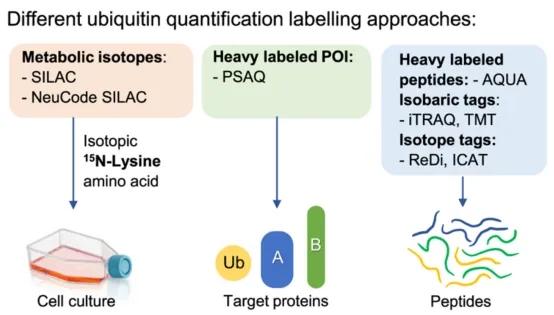Quantitative Ubiquitomics Service
Quantitative analysis of protein ubiquitination is essential for understanding how this dynamic post-translational modification regulates protein stability, degradation, and signaling pathways. Quantitative Ubiquitomics Service at MtoZ Biolabs delivers accurate and reproducible measurement of ubiquitination dynamics on a proteome-wide scale, enabling breakthroughs in disease research, drug development, and biomarker discovery.
Overview
Ubiquitination is a reversible modification in which ubiquitin is covalently attached to lysine residues of target proteins, altering their stability, trafficking, and functional activity. It plays pivotal roles in protein turnover via the ubiquitin–proteasome system, signal transduction, immune response, and DNA damage repair.
Methods such as Western blotting, immunoprecipitation, and site-directed mutagenesis are commonly used to study ubiquitination, but they provide limited resolution and throughput. In contrast, quantitative ubiquitomics based on immunoaffinity enrichment of diGly peptides combined with high-resolution LC–MS/MS enables proteome-wide, site-specific, and dynamic analysis of ubiquitination under diverse biological conditions.
Services at MtoZ Biolabs
MtoZ Biolabs offers Quantitative Ubiquitomics Service that integrates immunoaffinity enrichment of diGly-modified peptides with advanced quantitative proteomics methods, including label-free workflows, TMT/iTRAQ multiplexing, and SILAC. Our standard workflow includes:
1. Protein Extraction and Digestion
Proteins are isolated from cells, tissues, or biofluids and enzymatically digested into peptides.
2. Enrichment of Ubiquitinated Peptides
DiGly-specific antibody enrichment selectively captures ubiquitination-modified peptides, ensuring specificity and reproducibility.
3. Quantitative LC–MS/MS Analysis
High-resolution Orbitrap platforms provide accurate quantification across biological conditions, using label-free or isotopic labeling strategies.
4. Bioinformatics and Statistical Interpretation
Differential analysis, pathway enrichment, and network mapping reveal the biological significance of ubiquitination changes.

Sahu, I. et al. BBA-GENE REGUL MECH. 2023.
Figure 1. Labeling Approaches for Quantitative Ubiquitomics
Why Choose MtoZ Biolabs?
✔ Specialized Enrichment Strategies: DiGly antibody enrichment ensures high selectivity for ubiquitinated peptides.
✔ Flexible Quantification Options: Label-free, TMT/iTRAQ, and SILAC adapted to project requirements.
✔ Comprehensive Bioinformatics: Providing motif analysis, pathway mapping, and regulatory network reconstruction.
✔ Transparent Deliverables: Clear reports and raw/processed data, ensuring confidence in downstream interpretation.
Sample Submission Suggestions
For optimal results in Quantitative Ubiquitomics Service, we recommend preparing samples according to the following suggested amounts:
-
Serum/Plasma: 100 μL
-
Urine: 2 mL
-
Animal Tissue: 200 mg
-
Plant Tissue: 10 g
-
Microorganisms: 500 μL
-
Protein Extracts: 5 mg
-
Cells: 1 × 10⁸
All samples should be snap-frozen in liquid nitrogen immediately after collection and shipped on dry ice to preserve integrity. Our technical team can provide tailored instructions to ensure compatibility with downstream workflows.
Applications
● Proteostasis and Protein Degradation: Characterizing ubiquitination in the regulation of proteasome-dependent turnover.
● Cancer and Neurodegeneration Research: Investigating ubiquitination-driven mechanisms underlying tumorigenesis and protein aggregation disorders.
● Drug Evaluation: Monitoring ubiquitination dynamics in response to proteasome inhibitors, PROTACs, or molecular glues.
● Cellular Stress and Immunity: Profiling ubiquitination changes during immune activation, infection, and DNA damage repair.
What Could be Included in the Report?
1. Comprehensive Experimental Details
2. Materials, Instruments, and Methods
3. Total Ion Chromatogram & Quality Control Assessment
4. Data Analysis, Preprocessing, and Estimation
5. Bioinformatics Analysis
6. Raw Data Files
Quantitative Ubiquitomics Service at MtoZ Biolabs provides high-quality, comprehensive datasets that illuminate the dynamic role of ubiquitination in cellular regulation. By combining selective enrichment, advanced LC–MS/MS quantification, and integrated bioinformatics, we empower researchers to unravel proteostasis mechanisms, identify therapeutic targets, and accelerate translational research.
To learn how our Quantitative Ubiquitomics Service can accelerate your discoveries, contact MtoZ Biolabs today for more information or a free consultation.








